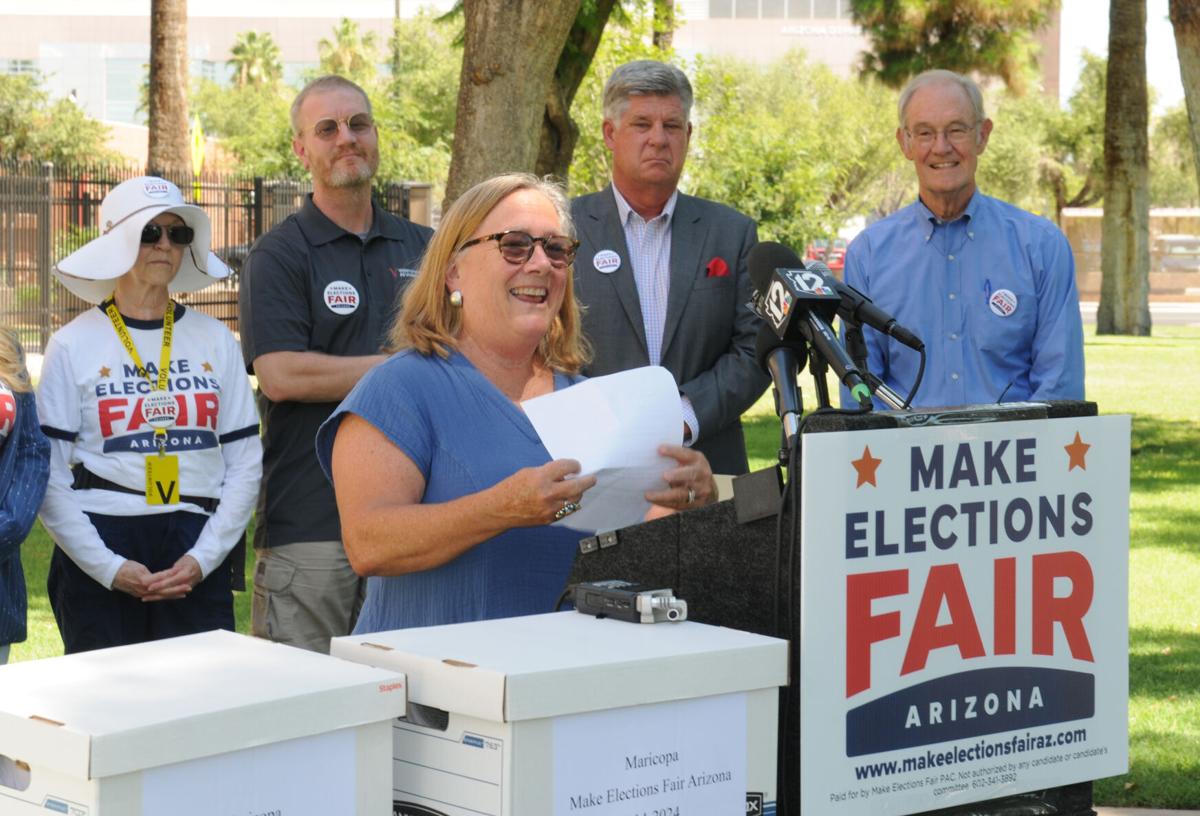PHOENIX — Backers of creating open primaries in Arizona are suing state lawmakers, saying they approved a misleading description of the effects of the ballot measure if approved.
The lawsuit filed Wednesday in Maricopa County Superior Court asks a judge to order the Legislative Council to reword the summary that will be sent to voters throughout the state.
Allowing the current description to go out to the more than 4 million registered voters may result in people being improperly persuaded to vote against the measure, said attorney Mary O’Grady, representing the group Make Elections Fair.
Much of the legal complaint is not about the words lawmakers used — though O’Grady has one specific objection — but rather about the order in which the Legislative Council put the provisions.
The initiative, if approved in November, would eliminate the current system of partisan primaries.
All candidates from all parties, or no party at all, would run against each other for the nomination. All registered voters could cast a ballot regardless of party affiliation.
It would be up to the Legislature to determine how many candidates advance to the general election or, if lawmakers do not act, the secretary of state would decide.
If the decision is just two, that makes it simple. But lawmakers or the secretary of state could allow up to five. In that case, there would be a system of ranked-choice voting to determine the winner.
The problem with the description, O’Grady said, is it lists the mere possibility of ranked-choice voting first, before any of the other provisions. She said that fails the legal test that requires the Legislative Council to prepare “impartial’’ descriptions.
It ignores that the initiative’s primary focus is on creating an open primary, she said.
O’Grady also pointed out there is no actual mandate to use ranked-choice voting.
That is a system where voters rank the choices on a ballot based on their preference, one through possibly as many as five. If the candidate ranked first gets at least half of the votes cast, that ends it. But if not, the candidate with the least amount of support is eliminated, the second-choice picks of those who voted for that person are then redistributed, and the process continues until a candidate wins at least half of the vote.
O’Grady said lawmakers are free to decide not to use that system and instead simply have the top-two vote-getters in the primary, regardless of party, advance to the general election.
She said representatives of the Make Elections Fair Committee asked the Legislative Council to make requested changes in the description. They did not, and gave unanimous approval to what she said is the legally improper language.
Sarah Smallhouse, who chairs the Make Elections Fair Committee, said the fact that both Republicans and Democrats on the council approved the wording does not mean it is fair.
“As the beneficiaries of the current electoral process we are proposing to change, the council (members) each have an inherent conflict of interest,’’ she said in a prepared statement.
Still, the lawsuit does not challenge the legal right of the council to write the summary.
No date has been set for a hearing.
State lawmakers are trying to short-circuit the initiative through their own ballot measure. It would put a provision in the Arizona Constitution to ensure that each recognized party gets o place its own nominee on the general election ballot.
Get your morning recap of today's local news and read the full stories here: tucne.ws/morning





